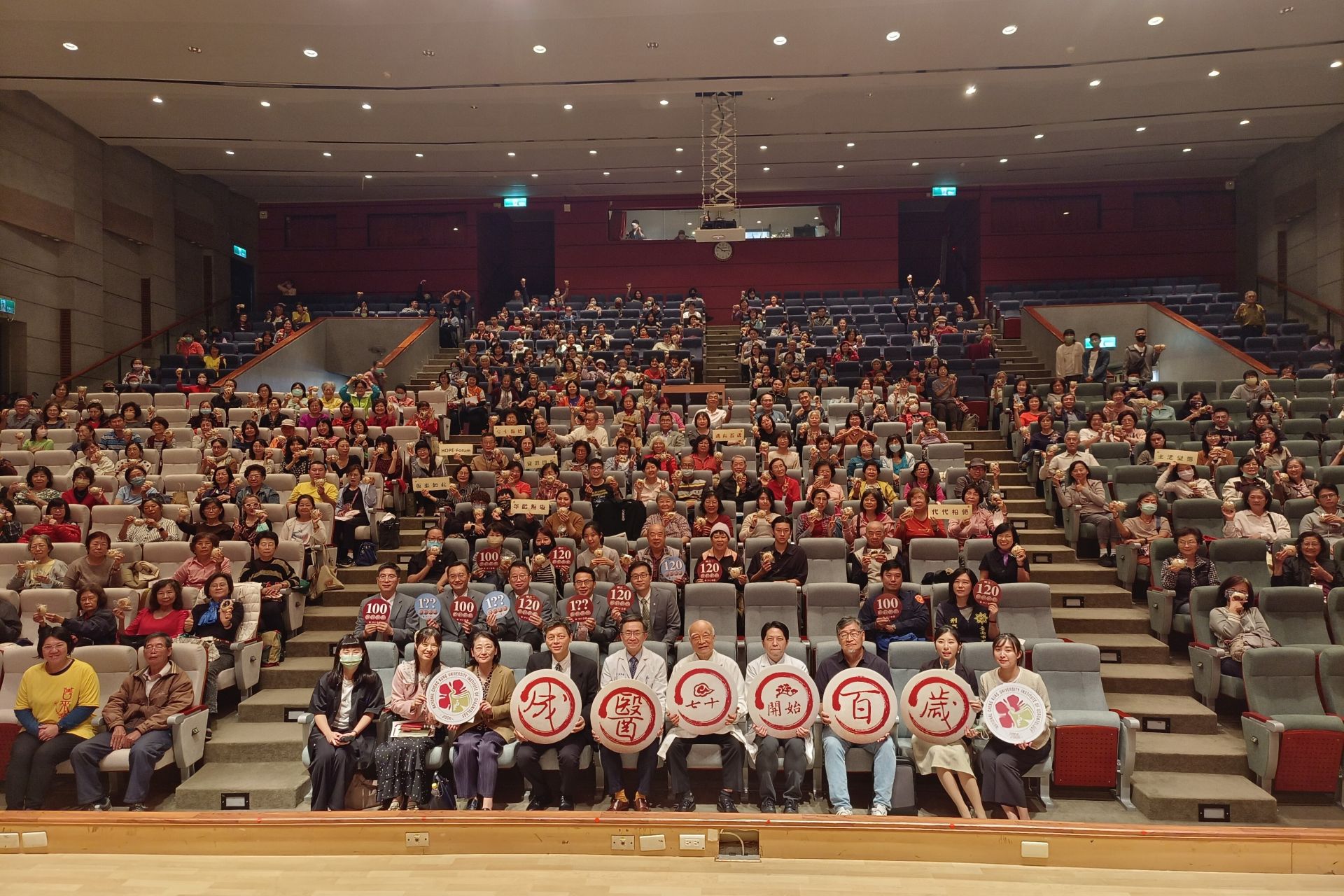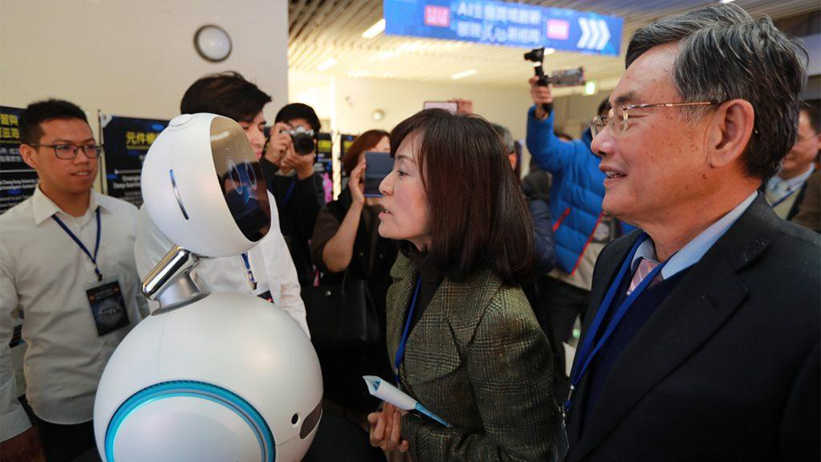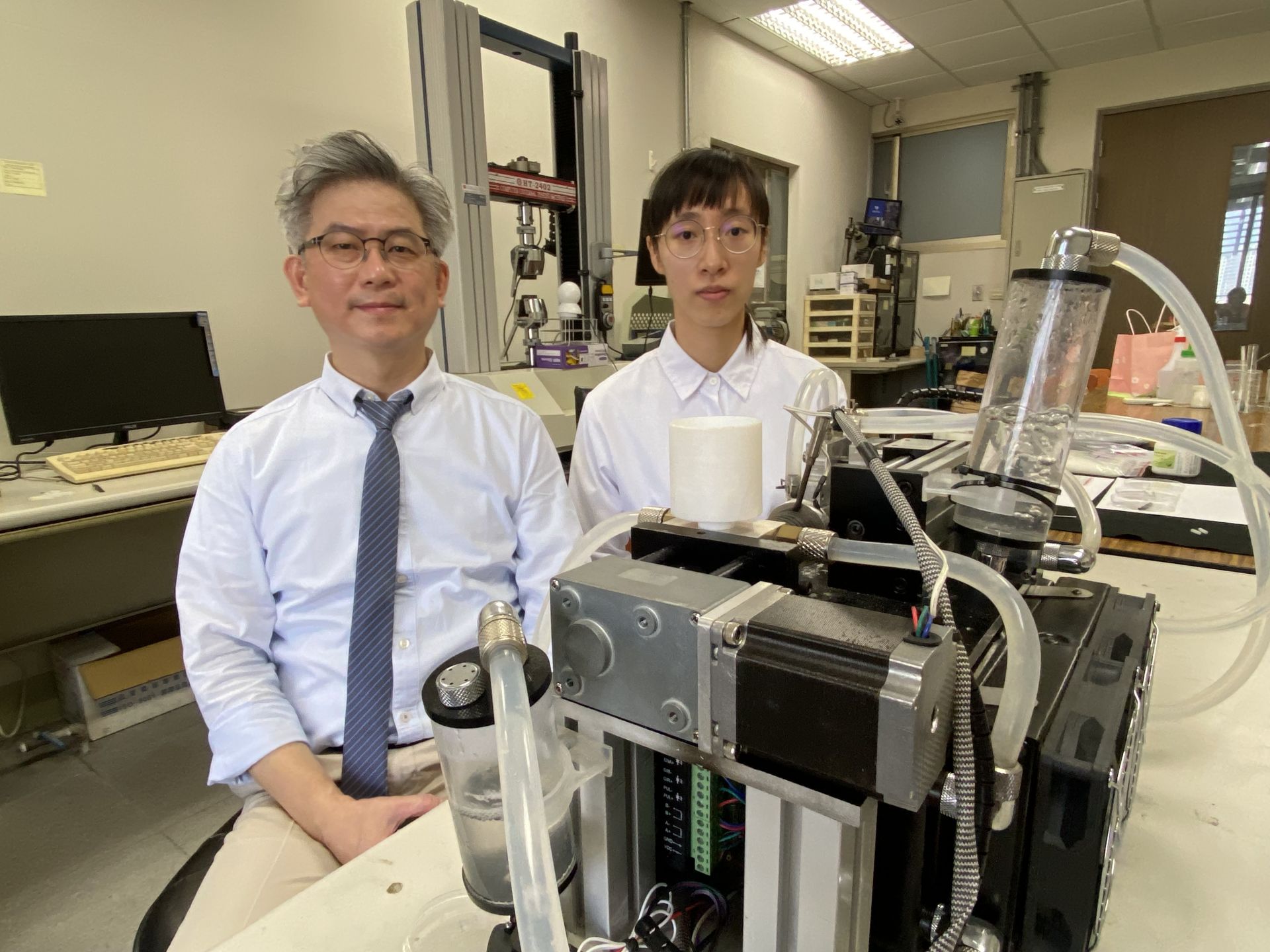SDG3
NCKU Inaugurates “Small Animal MRI Core Facility and the College of Medicine Neuroscience Research Center"
National Cheng Kung University (NCKU) has recently established a Small Animal Magnetic Resonance Imaging (MRI) Core Facility within its College of Medicine, providing a powerful tool for fundamental neuroscience research within academic institutions. To further promote both basic and clinical neuroscience research and development, the College has also established a new Neuroscience Research Center. On the morning of June 30, an inauguration ceremony was held at the Biomedical Excellence Building of the College of Medicine to formally open the “Small Animal MRI Core Facility and the College of Medicine Neuroscience Research Center,” with the goal of contributing to Taiwan’s advancement in neuroscience and strengthening industry-academia collaboration.
The ceremony was hosted by Dean Yan-Shen Shan of the College of Medicine. Vice Dean Kuei-Sen Hsu gave a detailed introduction to the MRI equipment and its significance. Attendees included President Shaw-Jenq Sean Tsai of National Chung Cheng University, NCKU Vice President Shyy-Woei Chang, Vice Deans Chia-Yih Wang and Chih-Peng Chang of the College of Medicine, Director Wen-Tai Chiu of the Core Facility Center, Professor Fu-Zen Shaw and Associate Professor Der-Yow Chen from the Department of Psychology, College of Social Sciences, as well as representatives from industry partners.
In his remarks, Vice President Shyy-Woei Chang stated that physicians are among the most outstanding professionals in society, and that the faculty members of the medical college represent the very best among them. He noted that research builds upon the legacy of those who came before, and with new equipment and facilities in place, the College of Medicine can pursue new research directions and expand its influence. He emphasized that NCKU’s progress is driven by the dedication of its faculty and staff, and recognized President Meng-Ru Shen’s strong support for interdisciplinary research. Ongoing collaborations between the College of Medicine and the College of Engineering exemplify this spirit. Vice President Chang expressed hope that more interdisciplinary initiatives would flourish across the university, and that NCKU would continue enhancing research capabilities in southern Taiwan while achieving global impact.
Dean Yan-Shen Shan reflected that since taking on the role of dean, he had envisioned establishing a small animal MRI core facility to elevate the college’s research capacity. Although the process faced various challenges, he was gratified to see the successful completion and inauguration of the facility before the end of his term, marking a meaningful milestone.
MRI technology offers the advantage of non-invasive, radiation-free imaging of living tissues, enabling researchers to observe internal biological structures and obtain crucial image data. This plays a vital role in advancing neuroscience, disease research, and drug development. The new Small Animal MRI Core Facility, housed at NCKU’s Cheng-Hsing Campus and part of the College of Medicine’s core laboratories, offers precisely these capabilities.
The facility is home to the only 9.4 Tesla MRI scanner installed at an academic institution in Taiwan. It is one of just two such systems available south of Miaoli County, with the other located at Kaohsiung Chang Gung Memorial Hospital. The MRI system is a Bruker BioSpec, a mainstream platform widely adopted by top research institutions worldwide. It enables two-dimensional and three-dimensional functional, structural, and neuroimaging scans of live laboratory mice, with spatial resolution reaching several tens of micrometers. This makes it an essential resource for neuroscience, biotechnology, and translational medicine research.
The services provided by the facility include standard imaging scans, customized scanning techniques, and advanced image analysis. Integrated with the College of Medicine’s core laboratory platform, the facility also offers comprehensive training programs. Its mission is to strengthen magnetic resonance imaging capacity in neuroscience, biomedical development, and translational medicine across southern Taiwan.
The Neuroscience Research Center is currently led by Professor Kuei-Sen Hsu. The center’s purpose is to promote, integrate, and carry out research and development in basic and clinical neuroscience, and to translate research outcomes into clinical applications. These efforts are aimed at addressing the challenges of diagnosing and treating brain and nervous system-related diseases.
The center’s core focus includes investigating the mechanisms underlying brain and nervous system disorders, developing diagnostic and therapeutic strategies, and advancing innovative neuroscience technologies. It actively promotes interdisciplinary research collaboration, cultivates talents in both basic and clinical neuroscience, and fosters the integration of teaching and research capacity. The center is organized into four major research divisions: neurodegenerative disease research, brain genetics and disease, brain and mental health research, and innovation in neuroscience technology.
The ceremony was hosted by Dean Yan-Shen Shan of the College of Medicine. Vice Dean Kuei-Sen Hsu gave a detailed introduction to the MRI equipment and its significance. Attendees included President Shaw-Jenq Sean Tsai of National Chung Cheng University, NCKU Vice President Shyy-Woei Chang, Vice Deans Chia-Yih Wang and Chih-Peng Chang of the College of Medicine, Director Wen-Tai Chiu of the Core Facility Center, Professor Fu-Zen Shaw and Associate Professor Der-Yow Chen from the Department of Psychology, College of Social Sciences, as well as representatives from industry partners.
In his remarks, Vice President Shyy-Woei Chang stated that physicians are among the most outstanding professionals in society, and that the faculty members of the medical college represent the very best among them. He noted that research builds upon the legacy of those who came before, and with new equipment and facilities in place, the College of Medicine can pursue new research directions and expand its influence. He emphasized that NCKU’s progress is driven by the dedication of its faculty and staff, and recognized President Meng-Ru Shen’s strong support for interdisciplinary research. Ongoing collaborations between the College of Medicine and the College of Engineering exemplify this spirit. Vice President Chang expressed hope that more interdisciplinary initiatives would flourish across the university, and that NCKU would continue enhancing research capabilities in southern Taiwan while achieving global impact.
Dean Yan-Shen Shan reflected that since taking on the role of dean, he had envisioned establishing a small animal MRI core facility to elevate the college’s research capacity. Although the process faced various challenges, he was gratified to see the successful completion and inauguration of the facility before the end of his term, marking a meaningful milestone.
MRI technology offers the advantage of non-invasive, radiation-free imaging of living tissues, enabling researchers to observe internal biological structures and obtain crucial image data. This plays a vital role in advancing neuroscience, disease research, and drug development. The new Small Animal MRI Core Facility, housed at NCKU’s Cheng-Hsing Campus and part of the College of Medicine’s core laboratories, offers precisely these capabilities.
The facility is home to the only 9.4 Tesla MRI scanner installed at an academic institution in Taiwan. It is one of just two such systems available south of Miaoli County, with the other located at Kaohsiung Chang Gung Memorial Hospital. The MRI system is a Bruker BioSpec, a mainstream platform widely adopted by top research institutions worldwide. It enables two-dimensional and three-dimensional functional, structural, and neuroimaging scans of live laboratory mice, with spatial resolution reaching several tens of micrometers. This makes it an essential resource for neuroscience, biotechnology, and translational medicine research.
The services provided by the facility include standard imaging scans, customized scanning techniques, and advanced image analysis. Integrated with the College of Medicine’s core laboratory platform, the facility also offers comprehensive training programs. Its mission is to strengthen magnetic resonance imaging capacity in neuroscience, biomedical development, and translational medicine across southern Taiwan.
The Neuroscience Research Center is currently led by Professor Kuei-Sen Hsu. The center’s purpose is to promote, integrate, and carry out research and development in basic and clinical neuroscience, and to translate research outcomes into clinical applications. These efforts are aimed at addressing the challenges of diagnosing and treating brain and nervous system-related diseases.
The center’s core focus includes investigating the mechanisms underlying brain and nervous system disorders, developing diagnostic and therapeutic strategies, and advancing innovative neuroscience technologies. It actively promotes interdisciplinary research collaboration, cultivates talents in both basic and clinical neuroscience, and fosters the integration of teaching and research capacity. The center is organized into four major research divisions: neurodegenerative disease research, brain genetics and disease, brain and mental health research, and innovation in neuroscience technology.
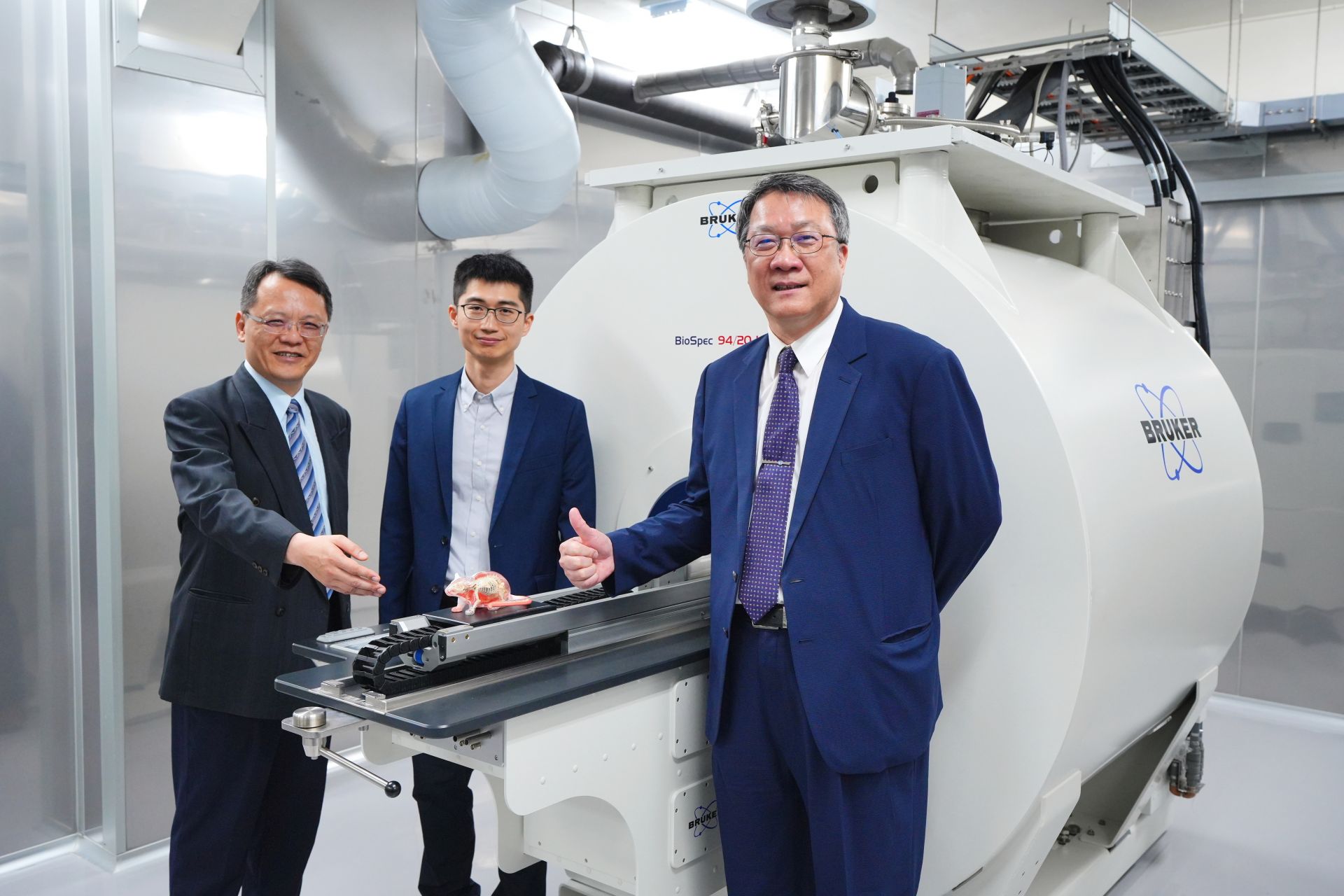
Dean Yan-Shen Shan (right) visits the Small Animal MRI Core Facility. The scanner had not yet been magnetized at the time of the photo.
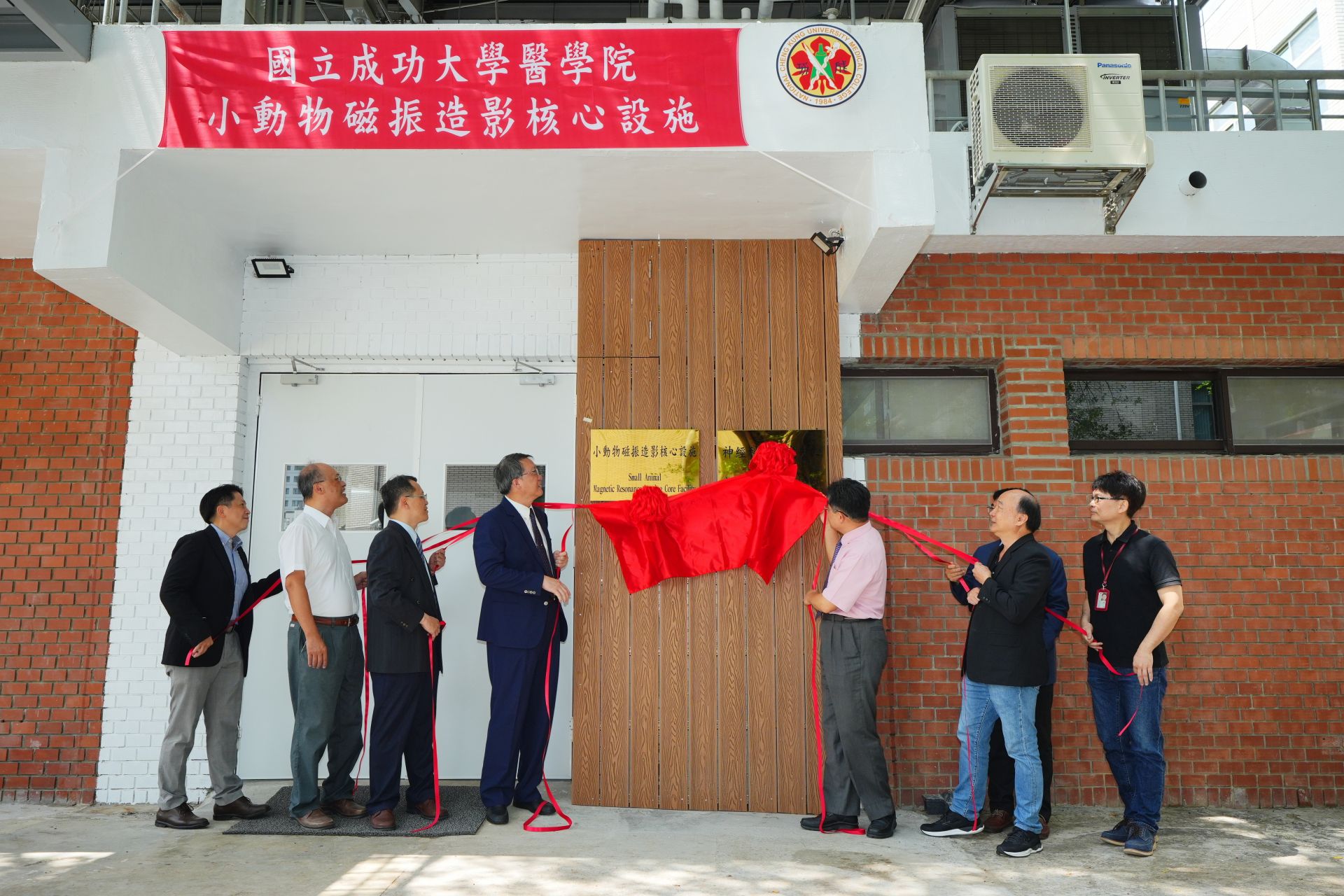
Inauguration Ceremony of the Small Animal MRI Core Facility and the College of Medicine Neuroscience Research Center.
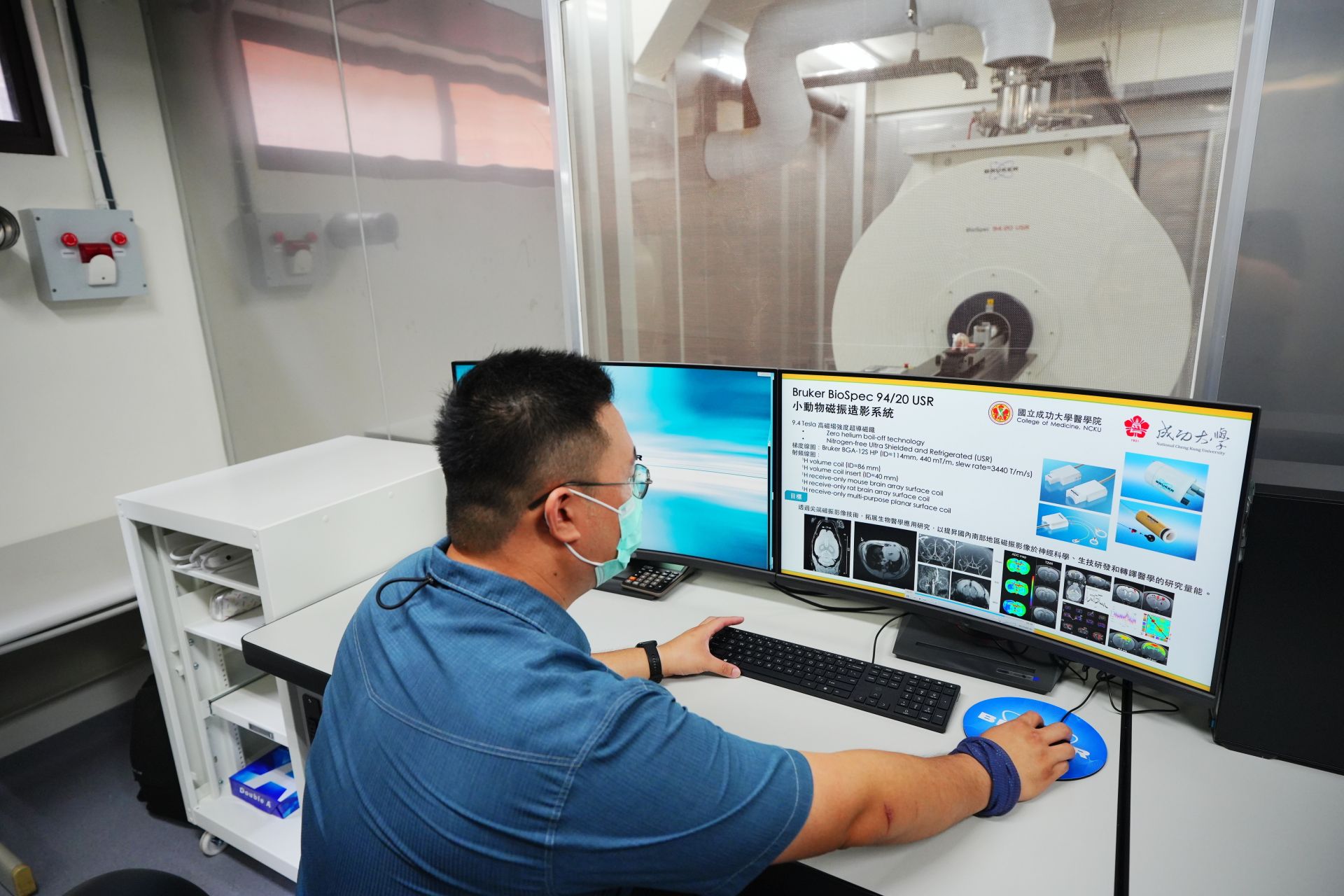
Operational View of the Small Animal MRI Core Facility.






